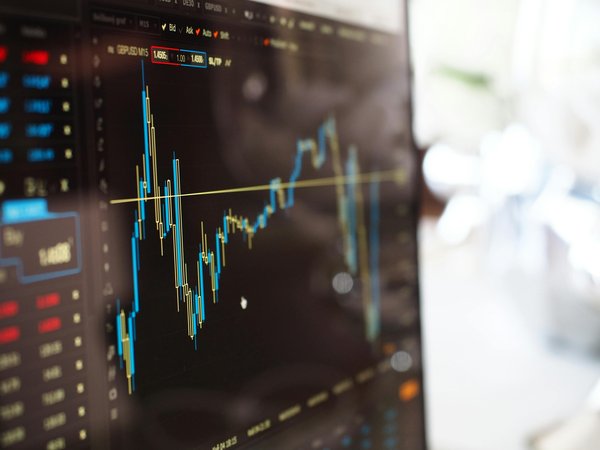As the Trump administration's tariff policies send shockwaves through the global economy, anxiety is building among investors worried about how to protect their retirement savings and other assets.
After the worst week in the stock market since the start of the COVID pandemic, the volatility continued Monday with the S&P 500 swinging more than 7% throughout the day — with a brief rally triggered by unfounded rumors that the White House might pause some enforcement of its aggressive tariffs. At its low point on Monday morning, the S&P 500 was down more than 4% — and 20% below its record high — before it ended the up-and-down day just 0.23% lower. Meanwhile, the Nasdaq closed slightly positive, and the Dow Jones Industrial Average was down nearly 1%.
MORE: Baseball legend Reggie Jackson's childhood home in Montgomery County to be demolished next week
For many Americans, the impact of the market slide has been most apparent in their 401(k) retirement plans. Some have seen chunks of their savings vanish in a matter of days, offering a stark reminder that even the most passive forms of financial planning are vulnerable to abrupt economic turmoil.
"The 401(k) has no design, really, to protect people from a big downturn," Ted Benna, who started the first 401(k) for private employers in 1981, said Monday. "We've always had major downturns, and the more severe ones take a while to get back. I never have had and never will have a way for people to avoid the exposure that they get when the market takes a major hit."
Benna, who lives in Lycoming County, created the 401(k) as an alternative to the failings of traditional long-term retirement plans. He wanted to help workers stow away and invest money from their paychecks, often with matching funds from employers, because other retirement vehicles like pensions historically lacked protections for employees and became albatrosses for companies. The 401(k) also offered a buffer against the threat of Social Security becoming insolvent in the face of a growing federal deficit.
In Benna's view, people under 55 shouldn't change anything about their 401(k) plans in response to the current downturn. A bear market may even work to their benefit down the line.
"In 2008, when younger employees took a much bigger hit than this, I said, 'Hey, look, with what has happened here, the opportunity for you to get a very attractive return over the next five to 10 years just got a lot better because you're able to buy more shares at a lower price than before this happened.'"
For people nearing retirement and those who have already stopped working, Benna said it's reasonable to start shifting 401(k) plans and IRAs toward less risky investments. Good options could include short-term money markets or government-backed certificates of deposit.
After the stock market dropped during the COVID-19 pandemic, Benna advised older Americans to be more careful with their investment portfolios. He expected another market downturn, and he suggested assets would be safer in cash than stocks and bonds.
"For those who are in a phase of life where they can't really afford to take a major downward hit, they need to think seriously about being invested less aggressively," Benna said.
The tumbling stock market has led to sobering warnings from financial experts, including several who told Bloomberg a global recession could be around the corner as other nations — led by China — retaliate against the United States with escalating tariffs of their own.
Wall Street Journal columnist Jason Zweig, who researches the neuroscience of investing, wrote last week that it's unproductive to obsess about damage to investment portfolios. He recommends the guidance of Jonathan Treussard, an investment adviser who compares financial decisions to a pyramid with three layers — each having different risk levels.
The bottom layer, including tightening personal budgets and diversifying assets, provides the best chance of financial breathing room with the lowest likelihood of future regret. The next layer may involve taking out stock or fund dividends as cash instead of reinvesting them, or moving money into safer investments like Treasury inflation-protected securities.
The top layer — things like dumping stocks or betting big on a market rebound — should only be considered after making moves in the other two layers. That's especially true in the climate of a global trade war, which hasn't unfolded in nearly a century.
Trading volume on 401(k) plans tripled on Friday, suggesting many people are making reactionary adjustments. Some experts have suggested considering Roth IRA or 401(k) conversions, which may provide a long-term tax advantage, or tweaking formulas for annual retirement payouts to leave more cushion. For most people, advisers suggest sticking to long-term plans.
Even though 401(k) plans have drawbacks, Benna believes they are still the best option for retirement savings. And for older Americans, he said taking proactive steps will work better than complacency.
"The problem is advisers will tell them to stick it out. I think that's wrong," Benna said. "My view would be that if you're in the stage of life where you're getting significant anxiety about this, I would move it now."

